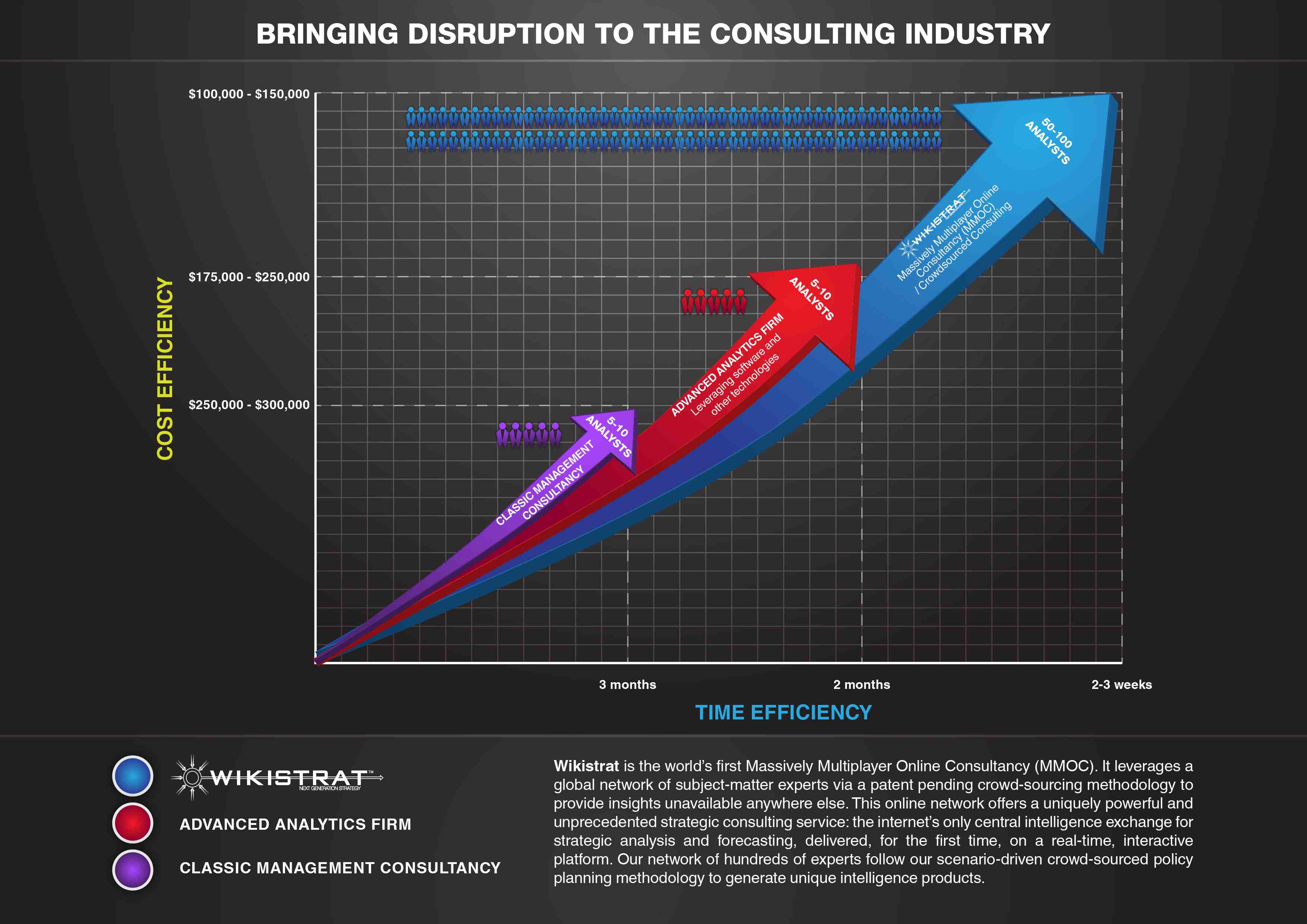
New slide Wikistrat uses to speak to its disruptive influence in the world of consulting. Thumbnail below for greater clarity.
In truth, it's a more specific argument that the slide suggests. Wikistrat isn't a full-spectrum consultancy but a specialized one that delivers a brutal efficiency on price in a space (simulations/exercises/wargames) that typically relies on 1099s (consultants) versus W2s (direct hires). Firms simply cannot house all the talent necessary to pull off simulations, so they end up augmenting their own talent with lots of outside experts, usually sucking them into to traditional consulting engagements (write reports) that culminate with a F2F gathering that constitutes the exercise - just at far higher cost than what Wikistrat accomplishes with its on-call network working online.
Plus, the timelines with traditional consultancies are long - as in months. Wikistrat, because it can amass so much talent so fast, can have them all working - simultaneously at their leisure and around-the-clock in a collective sense - to generate the same material in weeks.
That's cheaper and faster.
The better part comes in our complete indifference to volume of ideas/scenarios/insights/concepts. The F2F version of sims requires a drastic slimming down of possibilities. Can't have all these high-priced and important experts (I've been contracted to do such drills many times) rummaging through all manner of scenarios. So it's all reduced - pre-event - to just a few basic scenarios as dreamed up by the junior staff (their butts, the consultancy's seats).
With Wikistrat, we can truly structure for unlimited exploration. Stage the simulation, yes, but then lets the dozens of participants go wild with their imaginations - black swan-hunting, as it were - for days upon days. Then, when all the spaghetti has been thrown on the wall, we have the analysts themselves (not our junior staff) collectively weed out the less informing scenarios from the greatly-informing ones (by votes). And THEN we've got Master Narratives (numbers of scenarios linked across modeled stages) that are deep and wide and vetted and approved. And then we turn the same pool of analysts loose on exploring the downstream consequences and ginning up policy options.
Hands down, that's just a more powerful model than having 95% of your blue-sky imagination short-circuited - pre-event - by junior staffers who are in-over-their-heads (drinking at the fire hose). And that's where our "better" plays out: we don't fear exploring that volume of ideas (archiving all for the client in a completely transparent process) because we brute-muscle our way through it all with our numbers of brains (all storming). With the traditional consultancy, much of that uncertainty and exploration has to be zeroed out beforehand - lest they waste the time of the assembled experts (half of whom are leaving early on the second day to catch planes).
Cheaper, faster, better.
Wikistrat hasn't reinvented the wheel. It just created a bigger one that covers more ground faster - for far less cost.